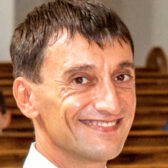Everyman’s Right for Mathematics
BACKGROUND AND PROJECT RATIONALE
Mathematics is often considered the prerequisite for intellect and science. However, it should rather be thought of as common property for everyone. In fact, it is reasonable to claim that there is a little mathematician in every one of us. A human brain constantly solves extremely complicated mathematical problems in everyday life. For instance, walking requires the solving differential equations by calculating each step carefully.
Finland is known for its high-quality education. This project seeks to apply a very Finnish concept, “Everyman’s Right”, when conceptualizing Mathematics to young learners. The aim is to bring Mathematics to all by changing the way we look at it. Mathematics should not be restricted to professors at some Centre of Excellence, but rather seen as a communal resource on a free playfield.
Turku University is presenting a completely new approach to bringing Mathematics to learners. The approach builds upon disruptive learning and non-institutionalization. The project suggests new insights into Mathematics education both for learning and teaching purposes. Difficult mathematical problems can be solved by even young children while using very simple tools. Through methods of co-design, real-life challenges are solved and scientific applications produced by little mathematicians at play.
GLOBAL CONTEXT
The project is piloted in Namibia. Global South attracts great interest in today’s world and is a relatively pristine environment for new initiatives. Some very interesting research has been done on mathematical aspects in African context. For example, the African fractals is a completely different way of looking at mathematical problems than the Western formulae.
Namibia provides a small and controlled environment perfect for piloting new projects. In addition, Namibia can act as an entry point to the Southern African region and the vast populations in the neighbouring countries. The Namibian government is putting a lot of resources into education and the country has good and modern educational policies in place. Namibia is open for improving learning and educational methods.
OBJECTIVES
The project aims to introduce a new method of teaching Mathematics in schools. The pilot will be done at primary school level. Beneficiaries are students and teachers. The goal is to create an inspirational and rich learning environment and a hunger for Mathematics. The concept of contextual learning is key to the project.
Key concepts:
- Demanding problems, simple tools.
- Interactive environment, co-design for common mathematical grounds; breaking the barriers, Mathematics for all.
- Application to real-world problems. Two-way traffic between real life problems and mathematical solutions: the challenges spring from the environment, dialogue between concrete and abstract.
ACHIEVEMENTS AND PLANS
In 2019 some educational institutes in Namibia were visited and there were pilot activities of teaching Mathematics to preschool students in a fun and creative way. The classes were recorded and documented, so they can serve as a good starting point and reference for a more systematic and comprehensive project.
In 2020, we plan to establish a project team, identify and visit target institutes in Namibia, run classes and workshops to transfer knowledge to the local teachers. We focus on creating an engaging, open and encouraging classroom and school environment, where the students are eager to learn and enjoy participating in all activities. We also aim to identify potential talents and support their future growth. The project achievements will be documented and analysed, so they can be used for similar upcoming initiatives.
In 2021, the project scope can be expanded by involving additional educational institutes both in Namibia and in the neighbouring countries, so we can accomplish the initial concept of the project and provide “Everyman’s Rights” and access to Mathematics.
Contact



